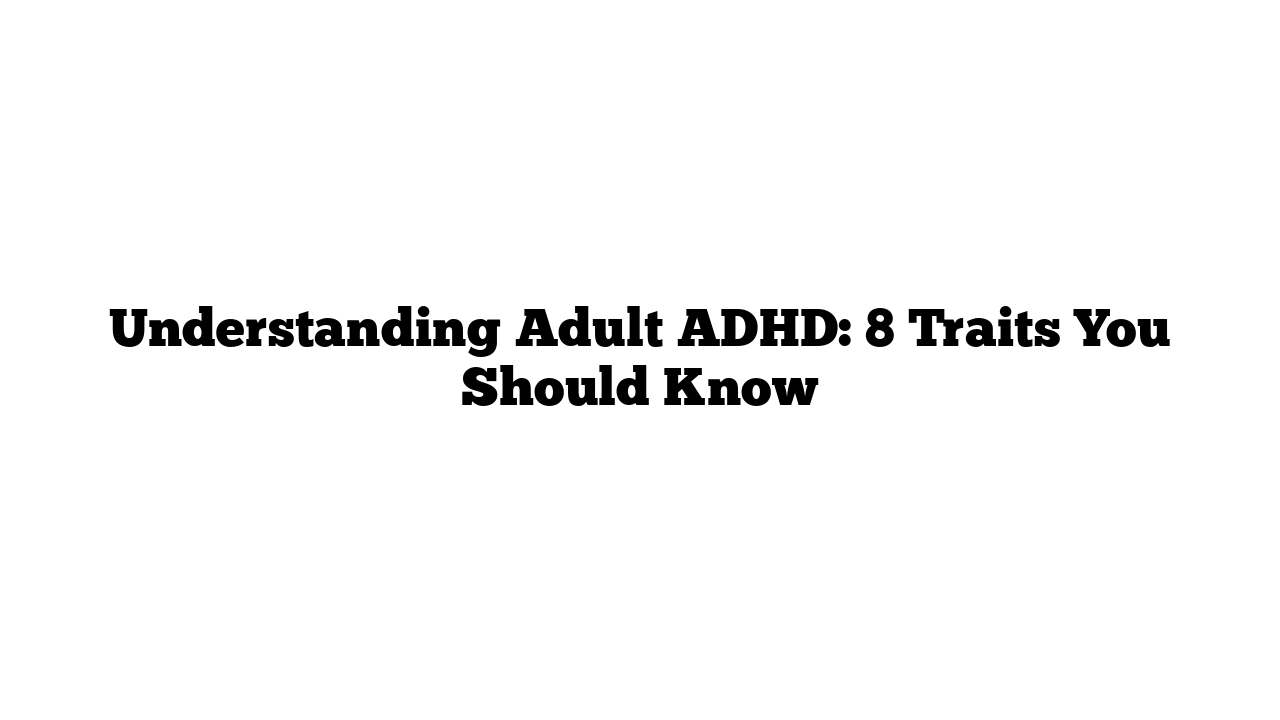Ever find yourself overwhelmed by tasks, hyper-focused on one thing, or struggling with impulsivity? These could be signs of Adult ADHD (Attention Deficit/Hyperactivity Disorder), which often persists into adulthood, bringing unique challenges. While it’s commonly associated with children, ADHD affects millions of adults across the USA. Here, we’ll explore the eight key behaviors associated with adult ADHD, helping you recognize the signs and understand potential solutions.
1. Trouble Staying Focused: Easily Distracted
One of the classic traits of ADHD in adults is difficulty maintaining focus, especially during tasks that aren’t stimulating. Simple distractions—a noise, movement, or notification—can quickly derail focus, making it hard to stay on track.
Example: Trying to complete a work task but getting sidetracked every few minutes.
“ADHD affects the brain’s executive functions, making focus and planning challenging.”
2. Procrastination: The Motivation Battle
Starting tasks can feel like a mountain to climb. Procrastination often stems from a lack of motivation, leaving many tasks unfinished. It’s not about being lazy; ADHD affects the ability to start tasks, often leading to frustration and low self-esteem.
Example: Knowing you need to start a project but struggling to get going until the last minute.
3. Forgetfulness: Misplaced Minds
For adults with ADHD, forgetfulness can be a daily hurdle, affecting work, relationships, and responsibilities. Walking into a room and forgetting why you went in or misplacing items frequently can be signs of ADHD.
Solution: Organizational tools like reminders and checklists can help manage forgetfulness.
4. Hyperfocus: The Double-Edged Sword
While distraction is common, so is hyperfocus, where you become intensely engrossed in a task. Though productive, hyperfocus can lead to neglecting other important activities, such as meals, sleep, or responsibilities.
“Balancing hyperfocus by setting alarms or taking breaks can help you stay productive without losing track of time.”
5. Struggles with Organization and Time Management
Disorganized workspaces and poor time management are common in adults with ADHD. This includes cluttered spaces, missed deadlines, and an inability to accurately gauge how long tasks will take—known as time blindness.
Example: A cluttered desk and scattered projects might not reflect messiness but an ADHD struggle with organization.
6. Impulsivity: Acting on the Fly
Impulsivity often accompanies ADHD, leading to quick decisions without fully considering consequences. This can manifest as impulse buying, interrupting conversations, or even riskier behaviors like reckless driving.
“Impulsive actions aren’t intentional; they stem from the difficulty in controlling responses to immediate thoughts or desires.”
7. Emotional Dysregulation: The Roller Coaster Ride
Emotional dysregulation in ADHD can mean rapidly shifting moods, intense feelings, and low tolerance for frustration. Sensitivity to criticism or minor inconveniences can trigger reactions that feel overwhelming.
Example: Getting stuck in traffic and experiencing intense frustration, or reacting strongly to feedback at work.
“Emotional sensitivity in ADHD can make everyday situations feel amplified, affecting relationships and self-esteem.”
8. Sleep Challenges: Restless Nights
Adults with ADHD often experience sleep difficulties, such as insomnia, irregular sleep patterns, or restless sleep. Racing thoughts and irregular bedtimes contribute to daytime fatigue and low energy.
Solution: A consistent sleep schedule, calming bedtime routines, and possibly professional support can help manage sleep-related challenges in ADHD.
Building a Better Life with ADHD
Recognizing these traits is the first step in managing adult ADHD effectively. ADHD is a neurodevelopmental disorder, not a personal failing. With the right tools, support, and lifestyle adjustments—such as medication, behavioral therapy, and organization strategies—individuals with ADHD can lead fulfilling lives.
If any of these traits resonate, consider reaching out to a mental health professional for evaluation and personalized support.
For more on managing ADHD and mental health insights, visit medicaltimes.io website.
